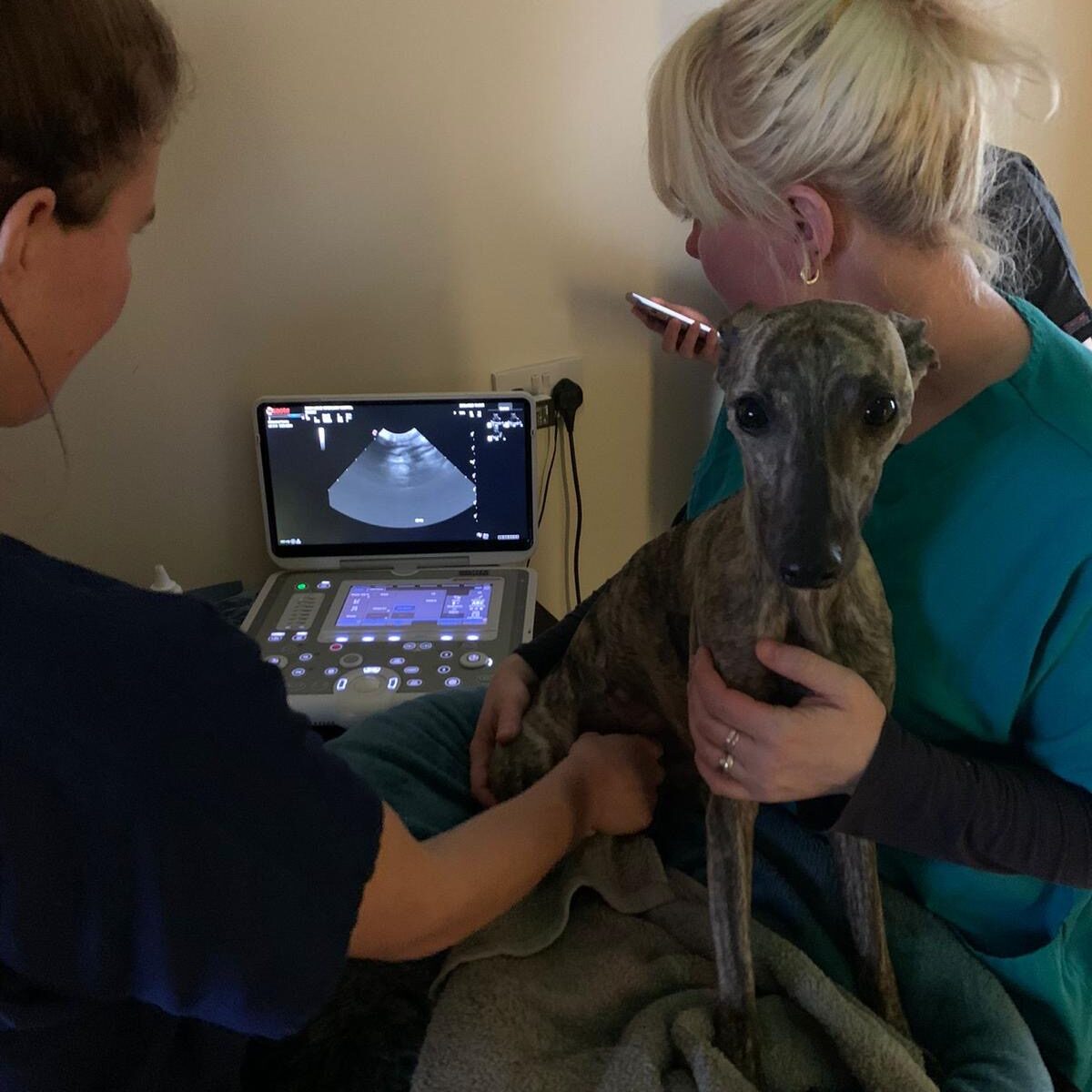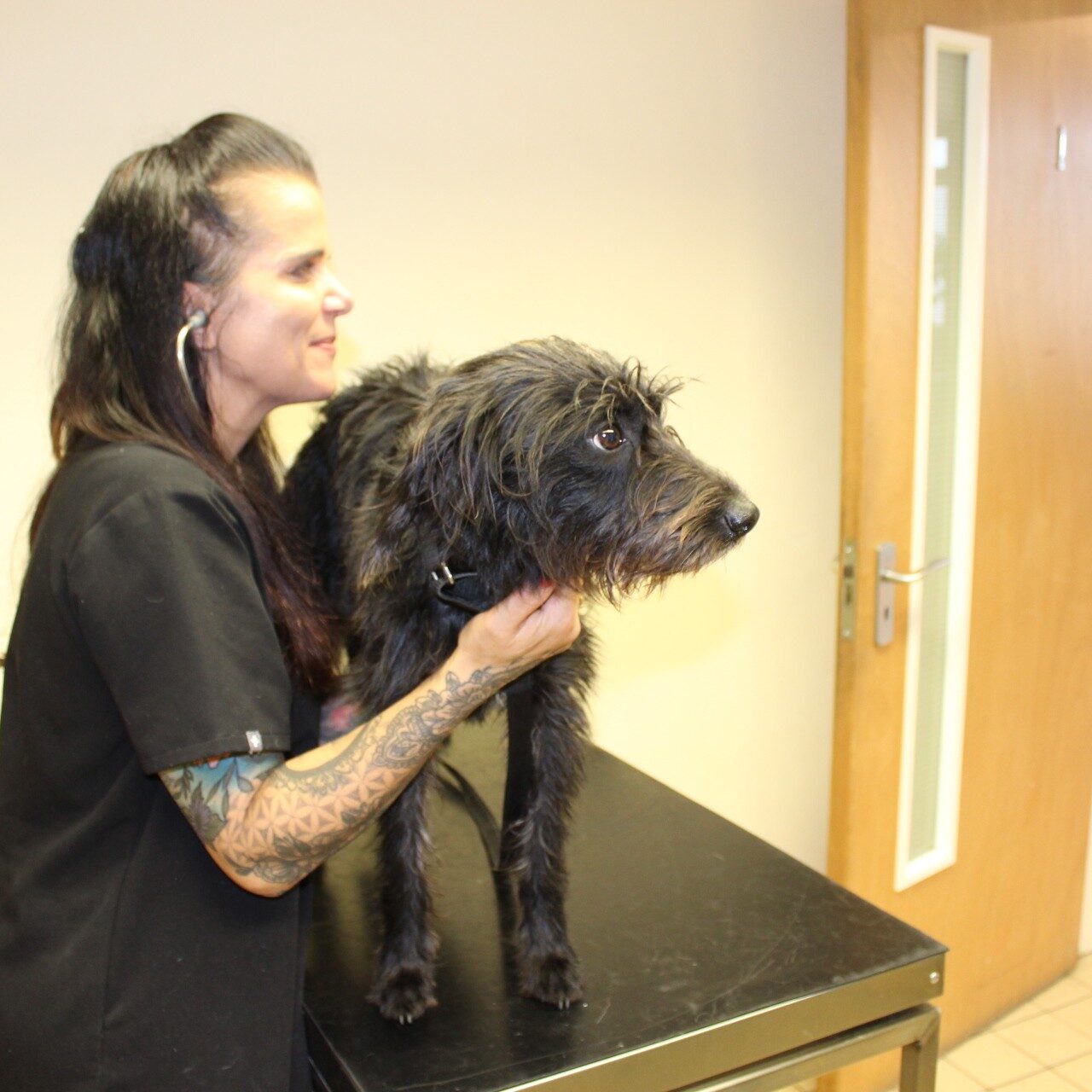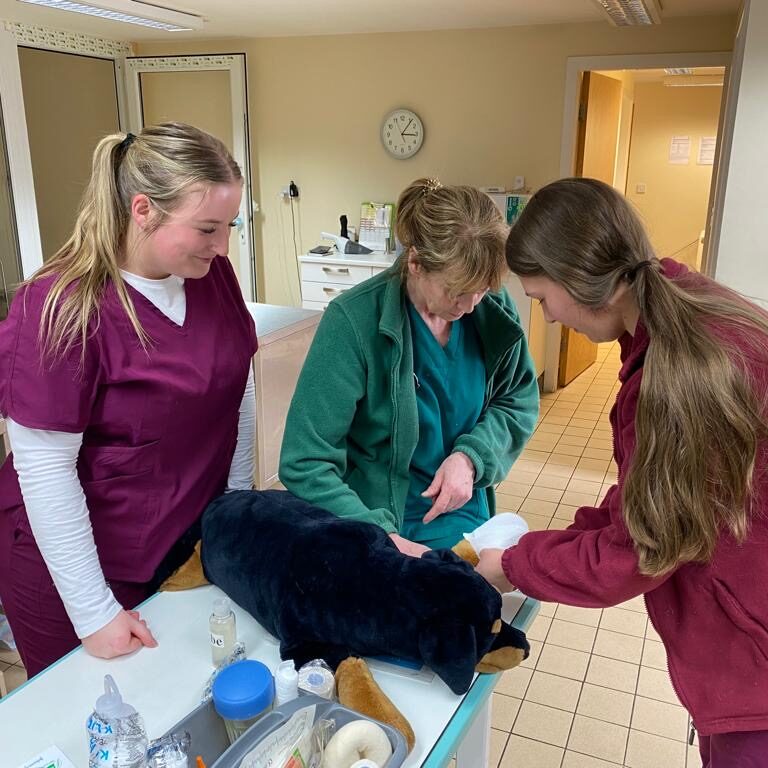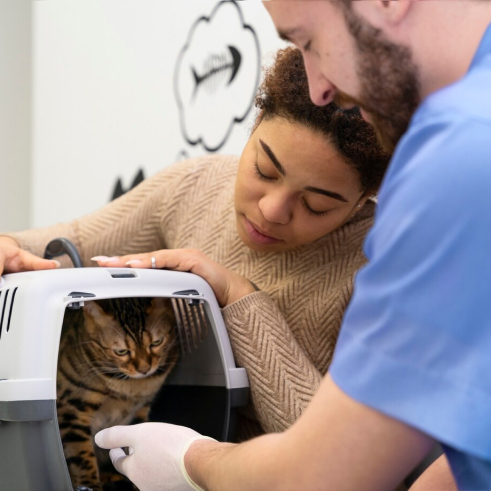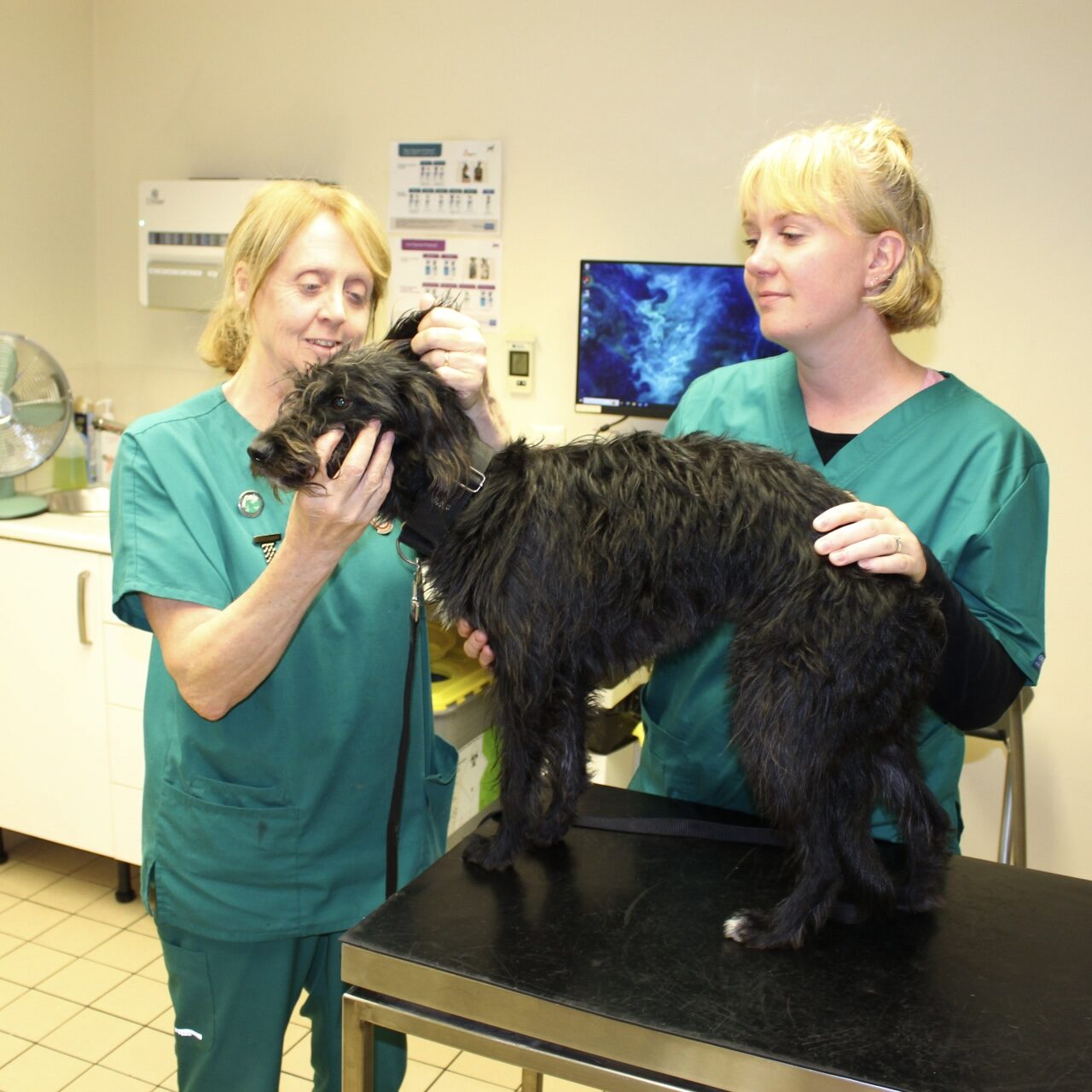Neutering
Neutering can help prevent illnesses and some unwanted behaviours. It is also the best way to prevent unwanted pregnancies.
We are aware that neutering is not a trivial procedure, but the benefits outweigh the welfare implications, and potential risks involved with the procedure. It may predispose to weight gain, but dietary management can easily control this.
We recommend that pet cats are neutered from 6 months of age. In the case of feral and rescue kittens it may be necessary to neuter earlier. There are many welfare benefits of neutering cats:
- Reduction in numbers of roaming cats injured or killed in road traffic accidents
- Reduction in fighting, thus reduction in infected wounds, abscesses and spread of FIV infection.
We usually recommend that bitches should be spayed after their first season, and dogs once they are physically mature. The welfare benefits of spaying your bitch include:
- Stops false pregnancies – false pregnancies can cause milk production, appetite loss and adverse behavioural problems
- Stops pyometra and other uterine diseases which are life threatening
- Reduces the risk of mammary tumours. Bitches spayed before their second season have a much lower prevalence of mammary tumours than entire bitches
- No seasons – avoids having to keep your dogs indoors, away from daycare, and away from other dogs for several weeks every 6 months
The welfare benefits of castrating your dog include:
- Limits straying, particularly in response to bitches in season, which causes nuisance, unwanted pregnancies and risks of injury through road traffic accidents.
- Medical reasons – to prevent or remove testicular tumours or reduce perianal adenoma or prostatic hyperplasia.
- As a treatment for excessive and unacceptable sexual behaviour towards bitches, people and inanimate objects.
